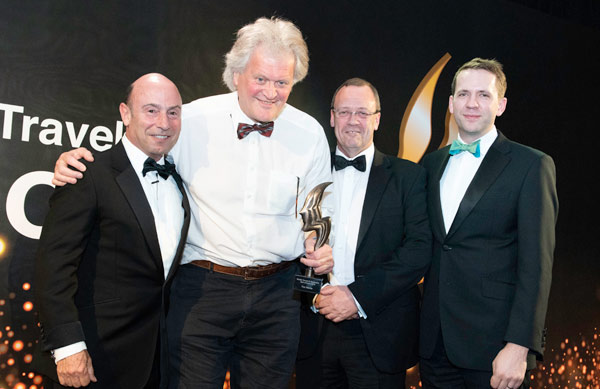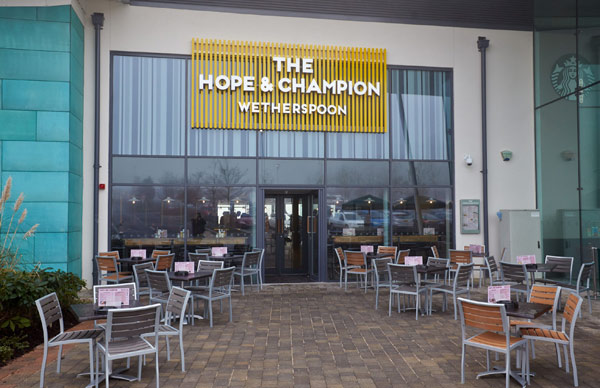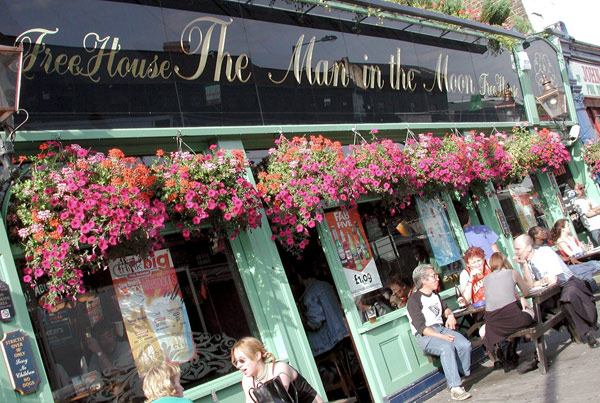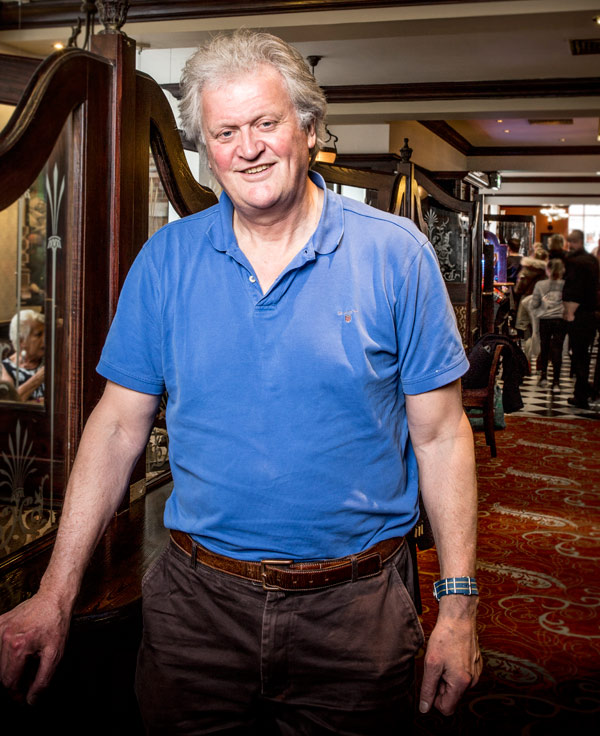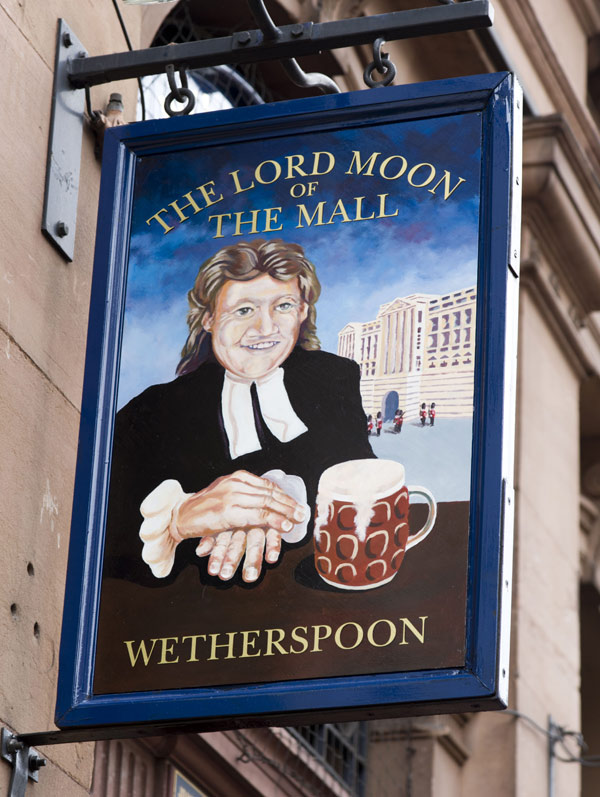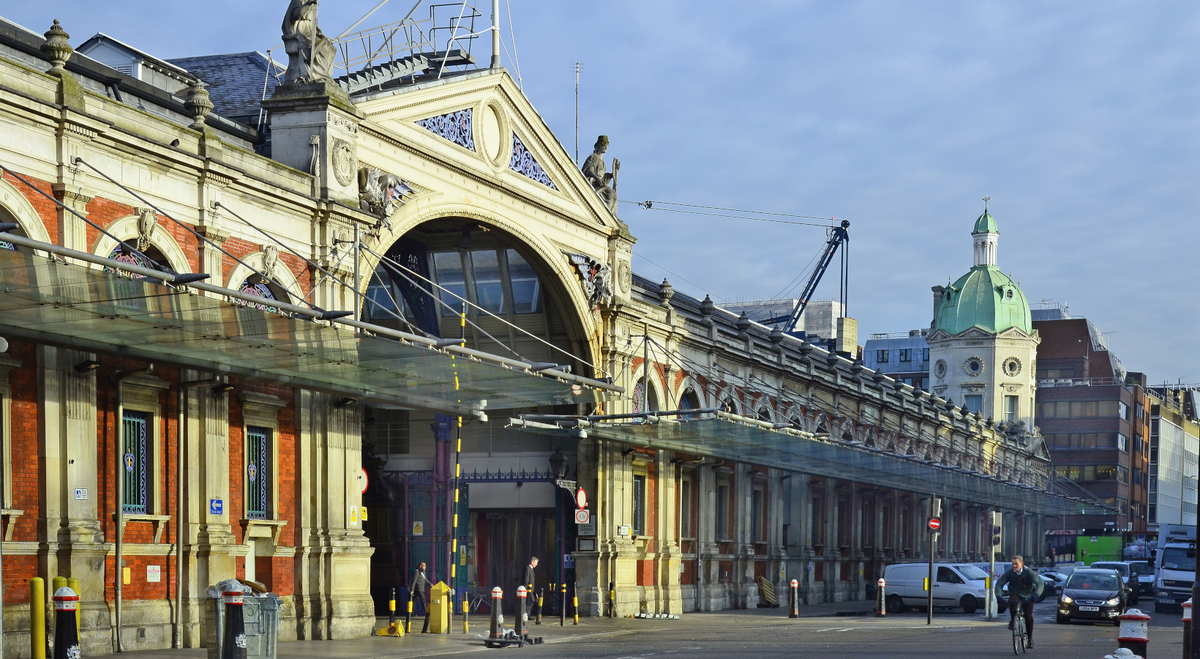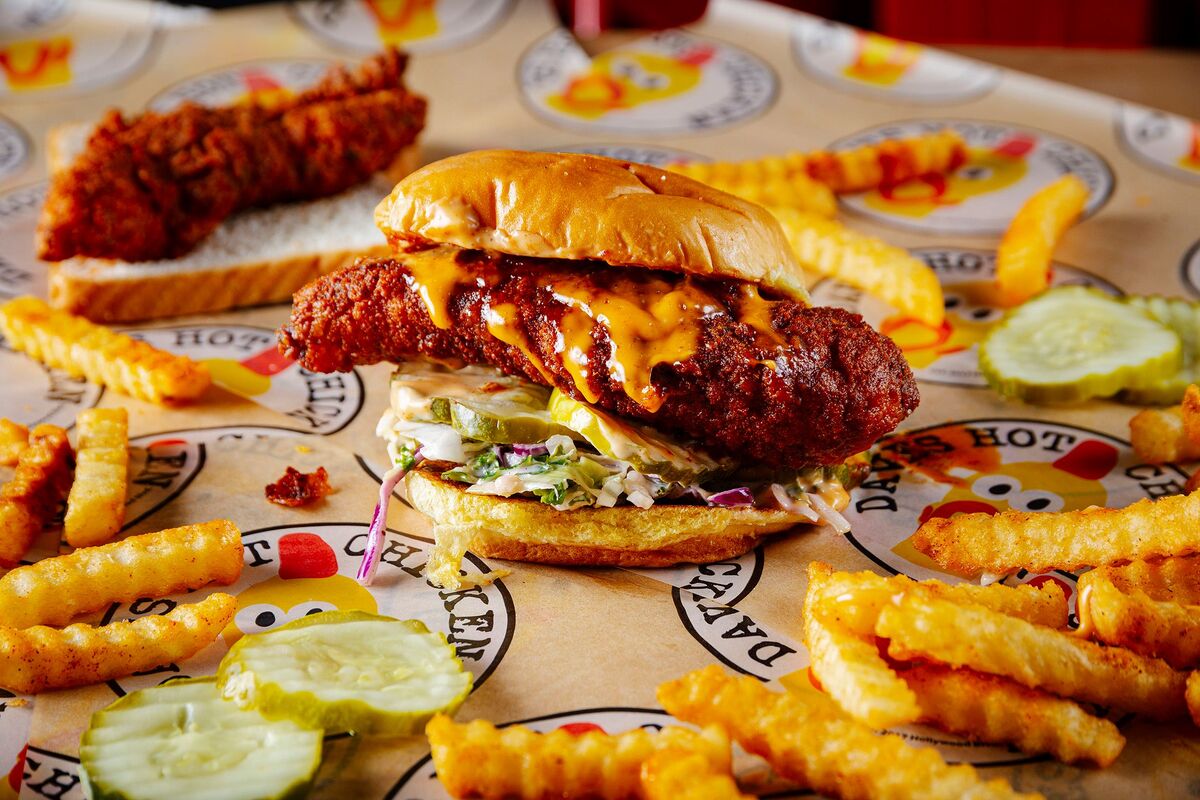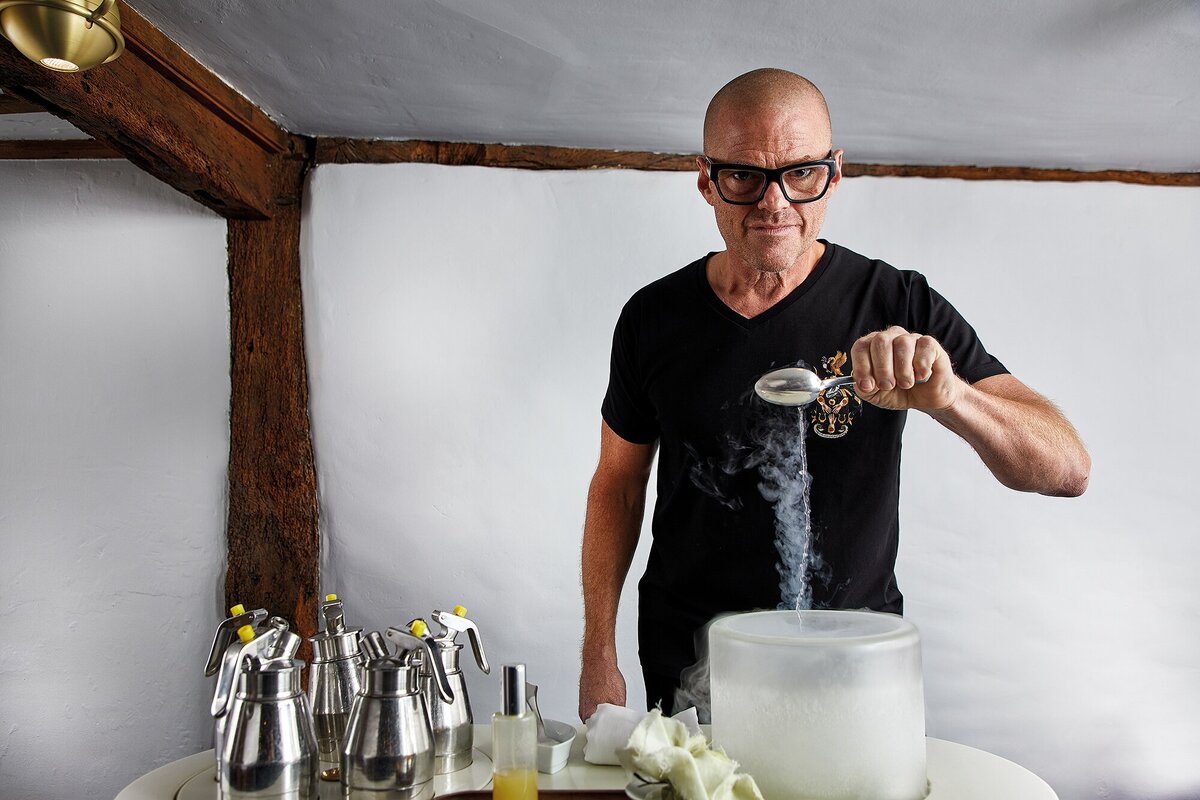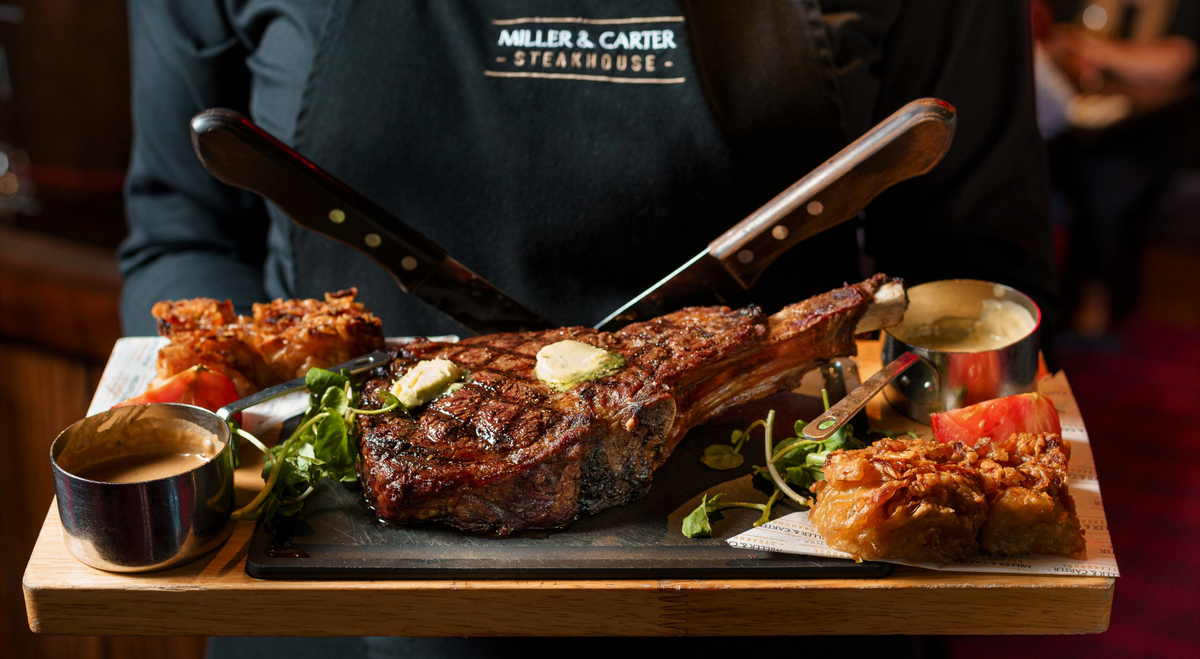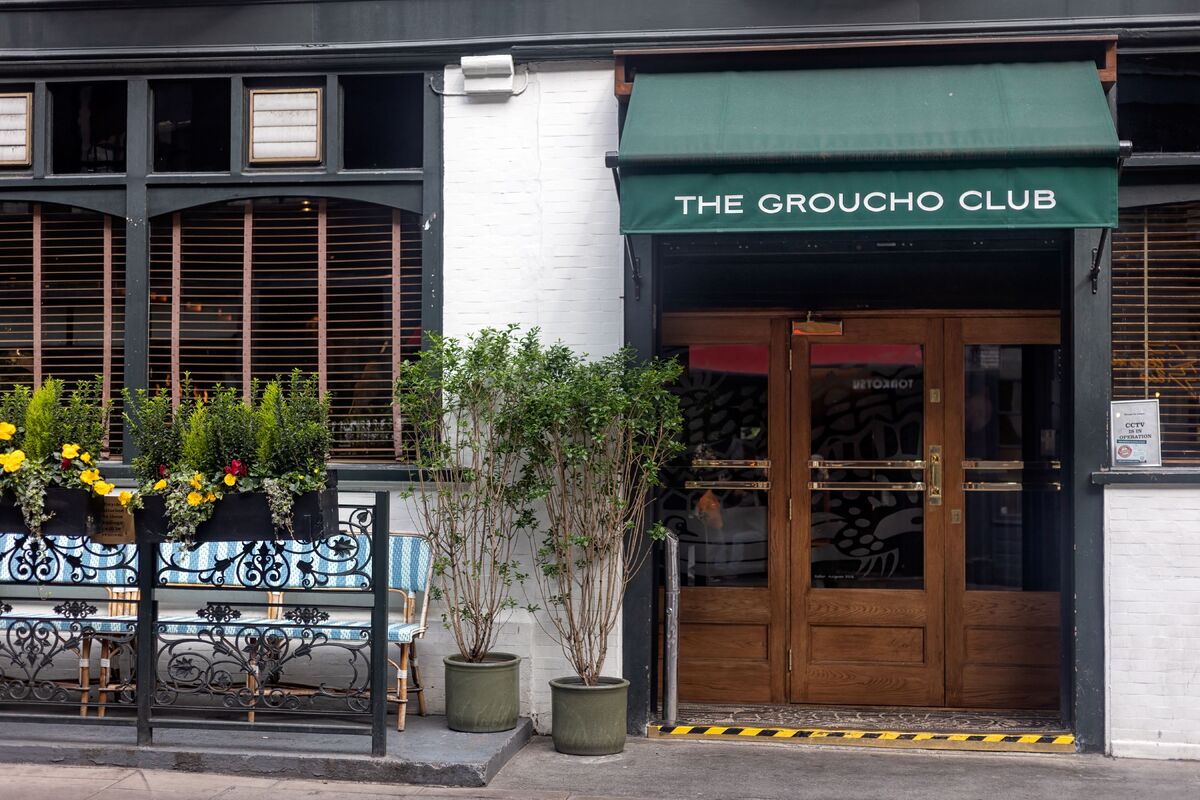Tim Martin: the UK's pub landlord
It's been a busy month for Tim Martin: ranking second in our Top 100; making news after deleting his chain's social media; and last week he was inducted into the British Travel and Hospitality Hall of Fame. Emma Lake caught up with the JD Wetherspoon founder in a rare quiet moment
Tim Martin is crouched over a flower pot photographing discarded cigarette butts outside JD Wetherspoon's Shakespeare's Head pub in London's Holborn when I arrive for our interview.
The veteran pub landlord, known for conducting multiple site visits every week to take careful notes on everything from cutlery to breakfasts and the cleanliness of toilets, explains that it is the hundreds of small observations and adaptations that bring about positive developments in the business.
He says: "If you do enough of those little observations, together they create change. The great danger is complacency, where you start to run it for the City and put prices up, put wages down and don't visit the pubs. After a few years profits are going up and everyone is saying how clever you are, but the business has been starved and run into the ground."
Referring to the cigarette butts he adds: "This is a very well-run pub, but if we want to do well in the future, we have to be attractive to the landlord."
Martin knows something about running a successful business. Since taking over his first pub, a former bookies in London's Muswell Hill in 1979, he has grown the original site into the JD Wetherspoon chain, which has 37,000 employees working across a portfolio of almost 900 free houses in the UK and Ireland with revenue exceeding £1.6b in 2017.
Last week he was inducted into the British Travel and Hospitality Hall of Fame, where he was presented with his award by James Nicholson from sponsor Franke Coffee Systems, as well as being named the second most powerful person in hospitality on The Caterer's Top 100 list earlier last month.
Commenting on his entry into the Hall of Fame, the pub boss jokes, "It's a lot better than the hall of ignominy. I'm very honoured to be nominated for any sort of award, especially by my peers. I accept it on behalf of 37,000 though, rather than myself. It's a team effort."
He explains: âI did almost everything you could do wrong. I didnât realise it wasnât just an opportunity to drink five pints a night until I saw my first profit and loss account. I was only 24 so I didnât know about staff or stocks or dealing with customers or anything. I only just managed to come through it. I think the main thing was the pub was busy and there was a demand for pubs which were free of tie and able to sell a wide range of ales. The demand for ale was slightly bigger than my incompetence.â
Eight to nine years later JD Wetherspoon had eight pubs in north London, all free of tie in an industry dominated by the big breweries. Martin says: âOne area we can claim credit, along with Andrew Marler, who owned the first pub, is in finding a way around the brewersâ monopoly by getting planning permission to convert disused shops and showrooms into pubs. Most people assumed you couldnât do it on any scale, but we saw the opportunity to create competition for the majors at an early stage because we were not inhibited by where we could open up, provided we could pay the rent.â
Expansion continued, although it was often opposed. In the pub chainâs first 15 years it fought 40 planning appeals, each taking more than a year to be heard in a process Martin describes as both âlaborious and expensiveâ. He says that, thankfully, securing licences and planning permission has become easier in the past 25 years, but council committees are not all with which he has had to contend.
The pub group has legions of fans and during our interview several approach âMr Wetherspoonâ. Some have started blogs and social media profiles charting tours of the chainâs venues around the country, but Wetherspoon also has its fair share of detractors who line up in a bid to block openings in their towns.
In Tunbridge Wells, a resident went on hunger strike upon hearing that JD Wetherspoon was trying to convert a Grade II-listed disused opera house into a pub, and actors Corin Redgrave and Susannah York were among those to oppose the conversion of the Grand Theatre in Clapham Junction.
Accusations that the company drives smaller operators out of the market are also sounded frequently, although this is an argument Martin dismisses, countering that operators do better when there is a thriving leisure scene. He also speaks proudly of the groupâs history of converting listed buildings, citing many design awards and the fact that an opera is staged annually at the Tunbridge Wells pub.
Silence is golden
The pub chainâs following appears to be on a steady incline, despite the occasional detractor, with like-for-like sales up 6.1% in the 26 weeks to 28 January 2018. Martin puts the increase down to an improbable period of being âin fashionâ, adding âwe appear to have gone from Sporting Life to Vogueâ.
While he says that it is small changes that make the difference, the group has made âa few big movesâ in its 39 years. These include an early decision not to have any music playing in the pubs, which Martin says saves customers from having to âlisten to someone elseâs choice of song at a slightly annoying volumeâ.
Wetherspoon was also early to the smoking ban, creating non-smoking areas and venues before legislation came into force in 2007, a move Martin says âcaused a revolt to match the French Revolutionâ. The chain has also taken gambles in opening for breakfast, offering food throughout the day and focusing on coffee.
Its latest âbig moveâ in April saw the closure of all its social media accounts. It was a decision that shocked commentators, despite Martin saying: âI donât believe that closing these accounts will affect our business whatsoever.â
But while JD Wetherspoon may have led the market with its changes, it is arguably best known for its consistencies â" particularly its low price point. Martin explains: âWe nailed our colours to the mast with ales and ales are better with a good throughput, so low prices perhaps help, but itâs hard to say [exactly why weâve stuck with it]. Even when we had one pub we had low prices. Maybe I was affected when at the first pub I tried to put up prices by 6p and I was given such a hard time. Itâs possibly to do with personal cowardice.â
Martin now describes himself as âinformally working full-timeâ, following a short-lived retirement. A typical week will see him spend two-and-a-half days visiting pubs and one-and-a-half days in the office. Martin is a constant figurehead. His âviewpointâ article opens each edition of the Wetherspoon News, the quarterly magazine distributed to the companyâs pubs, and he personally responds to the letters published. His position in the public consciousness has also been increased by regular appearances in news programmes ahead of the EU Referendum and an appearance on BBC Radio 4âs Desert Island Discs.
He says: âItâs easier now [to be a figurehead] because Iâve been doing it for a long time. I suspect with the first pub more people visited when they knew I had a night off. I think the customers like to see someone whoâs been there for 40 years on the front line.â
On believing in Brexit
An outspoken Brexiteer, Martin frequently writes about the subject within the pages of Wetherspoon News and even had pro-Brexit beermats printed outlining his arguments, which were placed on tables across his pubs.
He says that entering the political fray to campaign over Brexit âwasnât a difficult decisionâ although acknowledges having âsome anxietyâ that his stance could alienate some customers.
He explains: âIâm used to alienating people, but yes, the reality is there was some anxiety about it, although it was much heavier when I opposed the euro. With the euro, the prime minister was in favour, so was the Financial Times, almost all boardrooms and a lot of the political parties. Having survived the euro annoyance, I thought, Iâm known for it now and if people donât like it, theyâll tune out.
âMost people have not been abusing me. Iâm simply saying democracy is essential for the future of the world and the EU is becoming more undemocratic. Most people respect that argument, although they may not agree with it.â
Despite his presence on the front line of the EU debate, Martin insists he is not a burgeoning political figure but a âpub landlord lucky enough to be in a position to occasionally make a political pointâ.
So what next for the pub chain? JD Wetherspoonâs latest figures reported a 20.6% increase in pre-tax profits. In the corresponding press conference, Martin repeated predictions that growth could not be expected to sustain at its current rate, despite the rate having increased since he last issued the same warning.
He explains: âWeâve had a good run for a few years now. The cliché is that trees donât grow to the sky, so at some point weâre not going to have 6% like-for-like sales. We have to make sure we put that message across.
I think it pays to be realistic and cautious. Itâs a question of being sufficiently paranoid so youâre aware youâve got to get better.â
It may be this paranoia, or perhaps realism, that has seen Martin reduce his expectations of how big the pub chain can grow from 1,500 sites in the UK and Ireland to 1,000 or possibly 1,100.
Martin is similarly cautious in his predictions for the groupâs hotel arm, saying: âWeâre expanding cautiously. Weâve opened about 50 hotels with an average of 50 rooms â" a lot only have seven or eight rooms. We need a few years to see how that works. Above all, weâre trying to not waste capital. Itâs very easy to pour money into something that ends up being not very viable â"people lose their sense of humour if you do that enough.â
Asked what his advice would be to those starting out in the industry, Martin says: âBe careful, work hard, start small; you donât have to have a small ego, but you have to pretend you have. Can you look at yourself in the mirror and genuinely say, âI know fuck all?â Unless you can, youâre in the wrong business.â
Martin acknowledges that ego played a part in the building of his empire, but he stresses: âThereâs bound to be ego there, but the main thing that trips up hospitality companies is if the guy who runs it thinks he knows a lot. Einstein is supposed to have said âme trying to understand the universe is like a chicken trying to understand meâ. Every CEO has to realise theyâve got to be like a chicken.â
Martin, now 63, is showing no signs of abandoning his quest to create the perfect pub, or his campaign to achieve tax equality with supermarkets, which he believes is the biggest issue facing the industry. The icon of the British boozer predicts he has another â30 to 40 yearsâ before making a second bid to be crowned UK squash champion.



